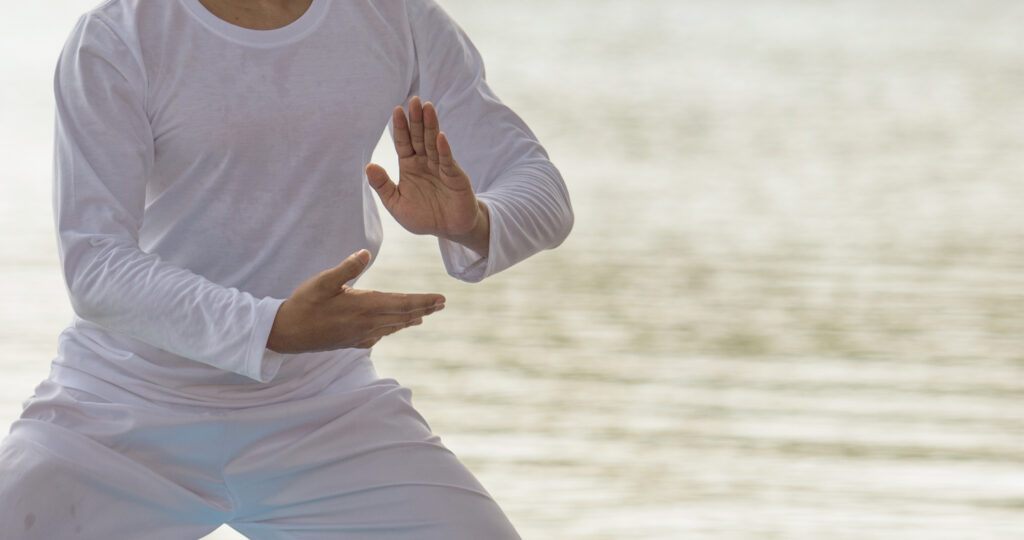
Tai Chi
Tai Chi, an ancient Chinese martial art practiced for centuries, combines gentle movements, deep breathing, and meditation. Its slow, flowing motions promote relaxation, balance, and inner harmony. But how does this centuries-old practice benefit individuals dealing with Parkinson’s disease?
Tai Chi’s Physical Benefits: Enhancing Balance, Flexibility, and Muscle Strength in Parkinson’s Patients
One of the hallmarks of Parkinson’s disease is impaired balance and coordination. Tai Chi’s slow movements help strengthen muscles, improve posture, and enhance proprioception—the body’s ability to sense its position in space. A study published in the New England Journal of Medicine found that individuals with Parkinson’s who practiced Tai Chi experienced significant improvements in balance and reduced risk of falls compared to those who did resistance training or stretching exercises alone.
Parkinson’s often causes stiffness and rigidity in the muscles, making simple tasks like reaching or bending challenging. Tai Chi’s gentle, flowing movements promote flexibility and range of motion, helping individuals move more freely and with greater ease. By regularly practicing Tai Chi, individuals with Parkinson’s can alleviate muscle stiffness and maintain their ability to perform daily activities independently.
Living with Parkinson’s can be emotionally taxing, leading to increased stress, anxiety, and depression. Tai Chi’s meditative aspect encourages deep breathing, mindfulness, and relaxation, helping individuals manage stress and cultivate a sense of calm amidst life’s challenges. Research published in the Journal of Alternative and Complementary Medicine suggests that this practice can reduce stress hormones, improve mood, and enhance overall well-being in individuals with Parkinson’s.
Holistic Wellness: Tai Chi’s Impact on Mental Health and Cognitive Function for Parkinson’s Sufferers
Emerging evidence suggests that Tai Chi also may offer cognitive benefits by stimulating neural pathways, promoting neuroplasticity, and enhancing brain function. A clinical trial published in the Journal of Alzheimer’s Disease found that regular practice was associated with improvements in cognitive function and memory retention in older adults, including those with neurological conditions like Parkinson’s.
Living with Parkinson’s disease presents numerous challenges that can limit one’s quality of life. Tai Chi offers a holistic approach to wellness, addressing physical, emotional, and cognitive aspects of health. By promoting balance, flexibility, stress reduction, and cognitive function, this exercise empowers individuals with Parkinson’s to live more fulfilling lives and maintain their independence for longer periods.
In conclusion, Tai Chi offers a lot of benefits for individuals with Parkinson’s disease, ranging from improved balance and flexibility to reduced stress and enhanced cognitive function. Clinical trials provide strong evidence supporting its efficacy as a complementary therapy in Parkinson’s treatment. By incorporating Tai Chi into their routine, individuals with Parkinson’s can enhance their physical and emotional well-being, ultimately leading to a better quality of life. As we continue to explore innovative approaches to managing Parkinson’s disease, Tai Chi stands out as a time-honored practice with high potential to alleviate symptoms and promote overall health and wellness.
